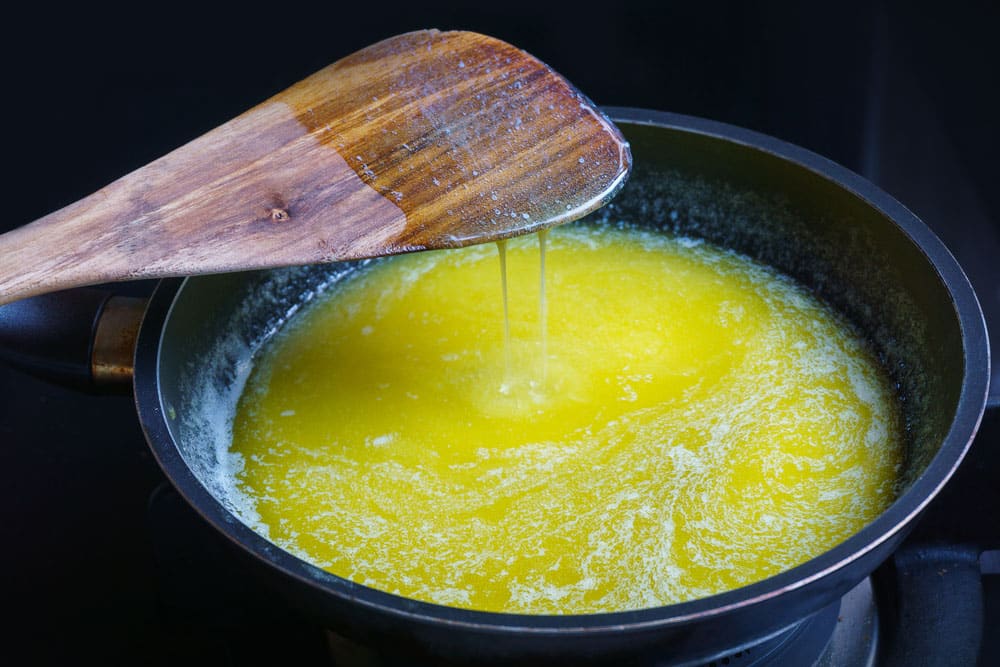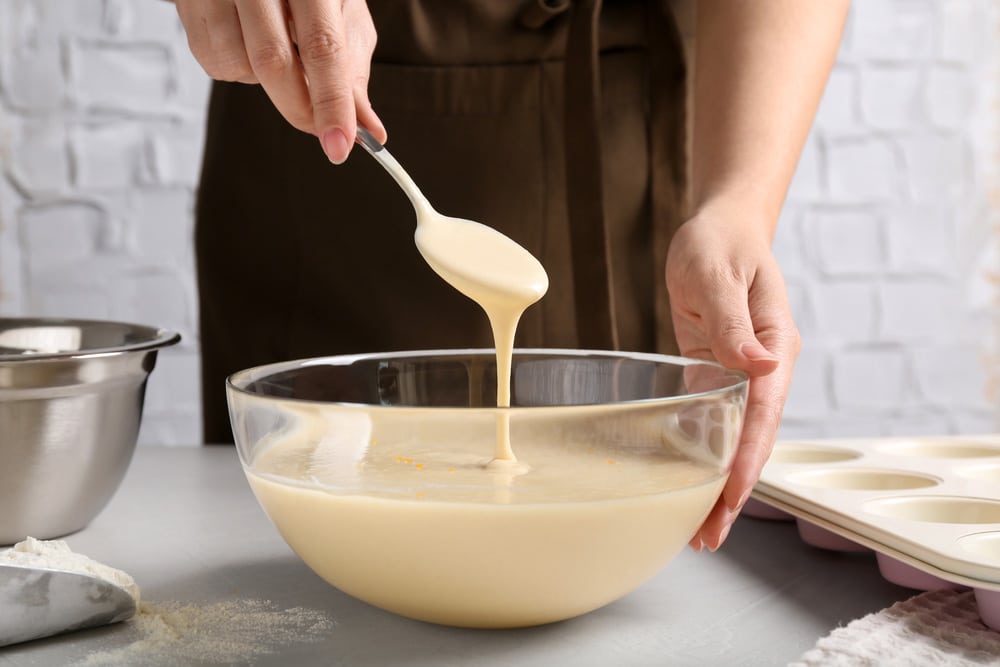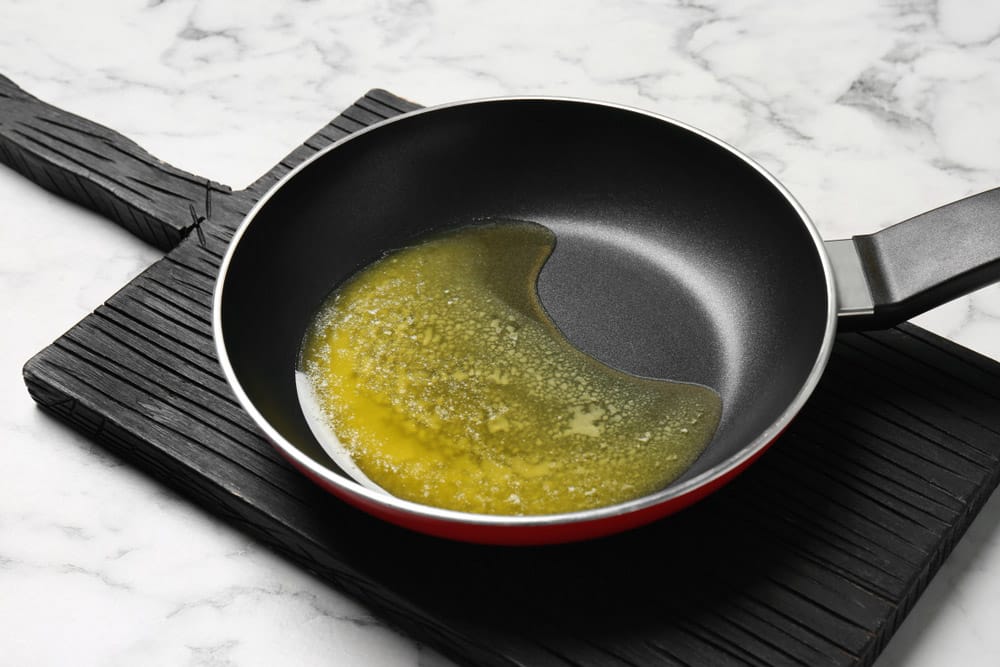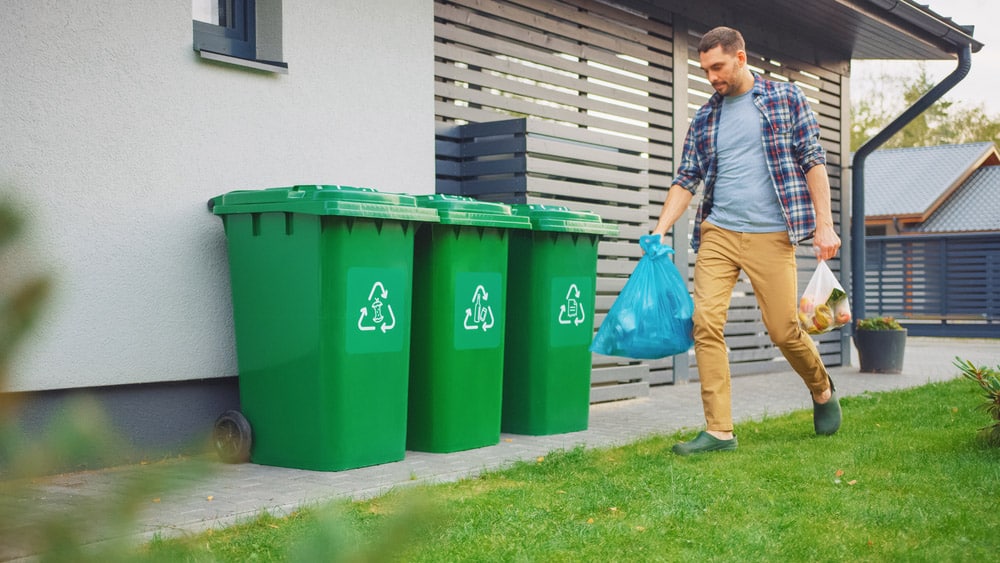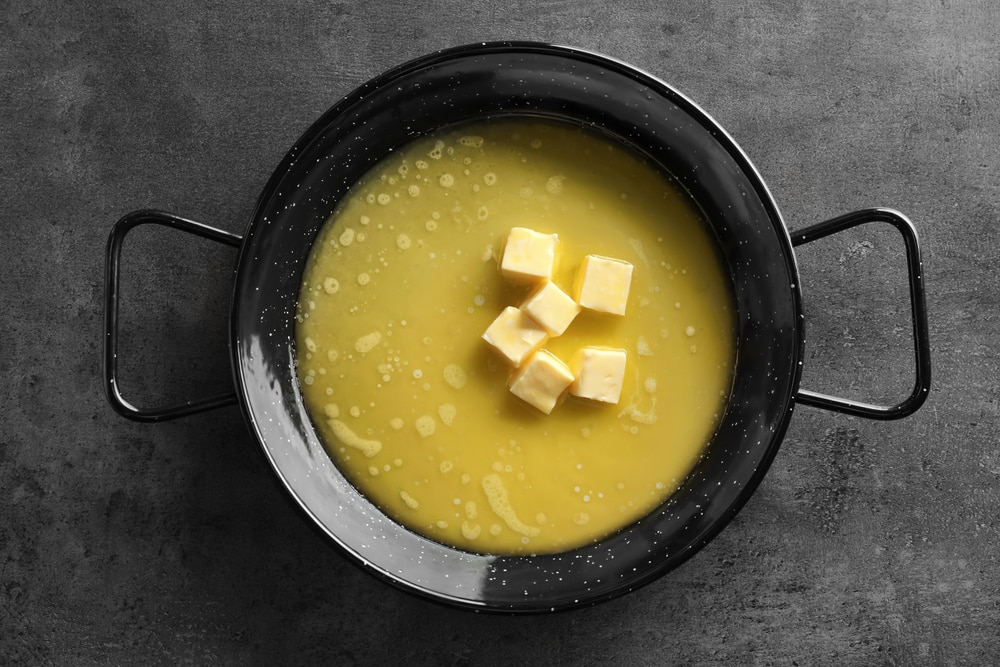
Did you know it can take more than 20 pints of milk to make just one pound of delicious butter? And that’s just one of the reasons it’s so valuable in society today. You’ve probably realized that butter is one of the most delicious additions to many a recipe. And here’s another perk: it has a long shelf life.
While it’s effective for various recipes to use butter in its solid form, many people melt the butter before using it in a dish. But if you’re not following a strict recipe, you may have some leftover butter after completing the meal.
This can present you with a challenge if you don’t want to waste food. Does butter change when you heat it up? Can you reuse it? Are there options to use the leftover melted butter? This article’s tips tell all!
What to Do with Leftover Melted Butter?
Luckily, most butters will last pretty well in the refrigerator. During the melting process, the solids will separate. However, this is one of the best things about butter: it can be melted and hardened up again in the refrigerator.
This is because the butter doesn’t undergo any chemical changes when it’s melted, only a physical change. Therefore, you can use it as you like, whether keeping it for another day, or using it in another recipe in its liquid form.
Here are some ideas on how to use it instead of discarding it.
- Spreads & Dips
Firstly, consider using melted butter in your spreads and dips, particularly if you’re a fan of cooking with shrimp and lobster. A dip made with melted butter tastes the best with these seafood items.
In addition, you can also toss melted butter in your popcorn and add a flavored salt to make it really interesting. You can even mix the melted butter with garlic and spread it on toast to make delicious garlic bread.
- Baked Items
It doesn’t matter which baking recipe you’re following, you can enhance it with melted butter. In the majority of cases, it does well with desserts and cookie recipes. This is because the melted butter will add a chewy texture to biscuits, such as chocolate chip cookies.
It also adds a crispier touch to other recipes. Furthermore, you can infuse melted butter into cake batter to make sure it turns out dense and moist. Try it and you’ll see that cake made with melted butter will melt in your mouth.
- Sauces
If you’re melting butter on the stovetop, why not use the leftover liquid for a sauce? In this case, cook it a bit longer than usual until you start seeing brown specks in the yellowish liquid. Even if you’ve already taken the butter off the stove, simply return it to the heat and reheat it.
The brown specks are actually toasted milk fats, and they will impart a caramel and nutty flavor to the sauce. This browned melted butter can be added to meat roasts and pasta to make sure it turns out rich and delicious.
Here’s our last tip on immediately using the melted butter. You can also use melted butter as a replacement for cooking oil in various recipes and with different cooking methods, such as:
- Sautéing of veggies and meats
- Roasting
- Pan-frying
Note: many people use melted butter in stir-fry recipes as well, but it doesn’t work as well as with most other cooking methods. Here the ideal product to use is cooking oil, such as vegetable oils.
- Storing the Melted Butter
Now that we’re shared the most suitable ways of using the leftover melted butter right away, we have more good news. You can also store it to use later, so don’t worry too much if you ever have lots of leftover melted butter.
However, don’t simply leave it on your kitchen counter. Storing the melted butter requires refrigeration in order to solidify the butter. In addition, refrigeration will make sure that the butter’s hardness, texture, and color are retained.
Do make sure to keep it covered while in storage in the refrigerator. No, the melted butter doesn’t go bad very quickly, even if you don’t put it in the refrigerator. However, it’s better to prevent contaminants and dust getting into the butter in the open air in a busy kitchen.
When you do want to melt it for another use, it’s best to melt it 10 to 20 minutes before using it in a recipe. Don’t take it out and let it stand on the counter all day.
This is primarily because when you keep butter at room temperature for too long, it can result in a change of smell and taste which isn’t pleasant. This last issue isn’t that big of a concern for households in colder climates or if you keep your kitchen at a very cool temperature with air conditioning.
What NOT to do with Leftover Melted Butter
Similar to other oily ingredients like salad dressings and cooking oil, you shouldn’t pour leftover melted butter down your drain. As it cools it will start clumping and solidifying, which will create obstructions in your drain system.
Over time, this can completely block sewers and even lead to sewage backing up in your pipes and causing hygiene problems. If you have leftover melted butter that you can’t use again—for example if it’s contaminated by other food or has gone off—rather wait until it has solidified.
Then you can discard by throwing it in the garbage bin. If you realize someone in your household did pour leftover melted butter down the drain, you need to help clear the pipes. You can pour in some boiling water, as well as baking soda, vinegar and dish soap.
The heat along with the soap and the bubbling of the baking soda will help loosen blockages. Hopefully it will all wash away.
What’s the Melting Temperature for Butter?
Usually, butter melts are temperatures between 82°F and 97°F. You can melt it in a pan on the stove or by placing it in the microwave. However, do keep an eye on it because you don’t want it to burn and turn brown.
Although it will generally do the same thing as yellow, heated butter, burnt butter could lead to a different taste and look of your dish.
FAQ
- Will Butter Harden After You Melted it?
Yes, most butter products will easily harden again after it was melted. It will harden best in the refrigerator.
- Can You Use Butter that was Melted Before?
There’s no harm in using melted butter in future. You can melt it more than once since the heat doesn’t result in a chemical change, only a physical one.
- Cold, Soft and Melted Butter: Why it’s Important to Read Recipes Carefully
Compare a few recipes and you’ll see they clearly state the required consistency of the butter. Do follow these directions meticulously because butter of different temperatures and texture will affect many aspects of your cooking. For example, melted butter will result in a different texture of baked goods than soft, room temperature butter.
In Conclusion: Butter Fun Facts
Now that you know you can use your leftover melted butter with peace of mind, or simply return it to the refrigerator to use another day, enjoy these fun facts on this much-loved ingredient:
- The color of butter can depend on the diet of the cow the milk came from
- India is the country in the world that produces the most butter
- Butter can be a source of vitamin A in your diet
